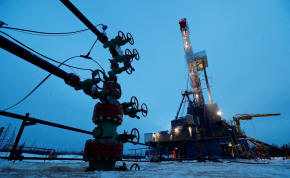G7 to hike sanctions on Russia, nears oil price cap deal
 Send a link to a friend
Send a link to a friend
 [June 27, 2022] By
Andrea Shalal and Sarah Marsh [June 27, 2022] By
Andrea Shalal and Sarah Marsh
SCHLOSS ELMAU, Germany (Reuters) -The Group
of Seven rich democracies will commit on Tuesday to a new package of
coordinated actions meant to raise pressure on Russia over its war in
Ukraine, and will finalise plans for a price cap on Russian oil, a
senior U.S. official said on Monday.
The announcement came as the White House said Russia had defaulted on
its foreign sovereign bonds for the first time in decades - an assertion
Moscow rejected - and as Ukrainian President Volodymyr Zelenskiy spoke
virtually with G7 leaders meeting at an alpine resort in southern
Germany.
Zelenskiy asked leaders of the Group of Seven leading industrial
democracies for a broad range of military, economic and diplomatic
support, according to a European official.
G7 nations, which generate nearly half the world's economic output, want
to crank up pressure on Russia without stoking already soaring inflation
that is causing strains at home and savaging the global south.
The price cap could hit Russian President Vladimir Putin's war chest
while actually lowering energy prices.

"The dual objectives of G7 leaders have been to take direct aim at
Putin's revenues, particularly through energy, but also to minimize the
spillovers and the impact on the G7 economies and the rest of the
world," the U.S. official said on the sidelines of the annual G7 summit.
G7 leaders would also make an "unprecedented, long-term security
commitment to providing Ukraine with financial, humanitarian, military
and diplomatic support as long as it takes", including the timely
provision of advanced weapons, the White House said in a fact sheet.
Western sanctions have hit Russia's economy hard and the new measures
are aimed at further depriving the Kremlin of oil revenues. G7 countries
would work with others - including India - to limit the revenues that
Putin can continue to generate, the U.S. official said.
India's Prime Minister Narendra Modi is one of the five leaders of guest
nations joining the G7 for talks on climate change, energy, health, food
security and gender equality on the second day of the summit.
"Since it is a mechanism that could benefit third countries more than
Europe," one EU official said. "These countries are asking questions
about the feasibility, but in principle to pay less for energy is a very
popular theme."
TARGETING RUSSIAN GOLD, DEFENCE SECTOR
A U.S. official said news that Russia defaulted on its foreign sovereign
bonds for the first time since the Bolshevik revolution in 1917 showed
how effective Western sanctions have been.
[to top of second column] |

A well head and drilling rig in the Yarakta oilfield, owned by
Irkutsk Oil Company (INK), in the Irkutsk region, Russia, March 11,
2019. REUTERS/Vasily Fedosenko/File Photo

"This morning's news around the finding of Russia's default, for the first time
in more than a century, situates just how strong the actions are that the U.S.,
along with allies and partners, have taken, as well as how dramatic the impact
has been on Russia's economy," the official added.
The Kremlin, which has the funds to make payments thanks to rich energy
revenues, swiftly rejected the U.S. statement, accusing the West of driving it
into an artificial default.
New sanctions planned by the G7 countries will target Moscow's military
production, crack down on its gold imports and target Russian-installed
officials in contested areas.
The G7 leaders would task their governments to work intensively on how to
implement the Russian price cap, working with countries around the world and
stakeholders including the private sector, the official said.
The United States said it would also implement sanctions on hundreds of
individuals and entities adding to the more than 1,000 already sanctioned,
target companies in several countries and impose tariffs on hundreds of Russia
products.
The agencies involved would release details on Tuesday to minimize any flight
risk, a second senior administration official said.
The Ukraine crisis has detracted attention from another crisis - that of climate
change - originally set to dominate the summit. Activists fear Western nations
are watering down their climate ambitions as they scramble to find alternatives
to Russian gas imports and rely more heavily on coal, a dirtier fossil fuel,
instead.

Japan is also pushing to remove a target for zero-emission vehicles from a G7
communique expected this week, according to a proposed draft seen by Reuters.
(Reporting by Andrea Shalal and Sarah Marsh, Additional Reporting by Angelo
Amante, Phil Blenkinsop; Editing by Thomas Escritt, Mark Heinrich and Alex
Richardson)
[© 2022 Thomson Reuters. All rights
reserved.]This material may not be published,
broadcast, rewritten or redistributed.
Thompson Reuters is solely responsible for this content. |